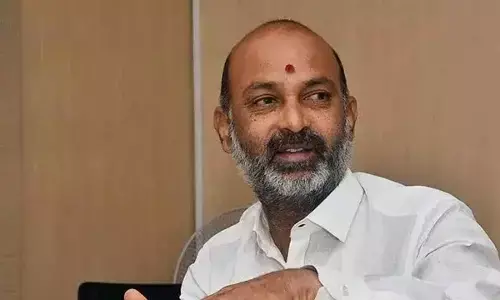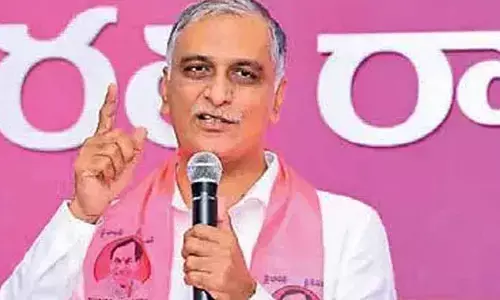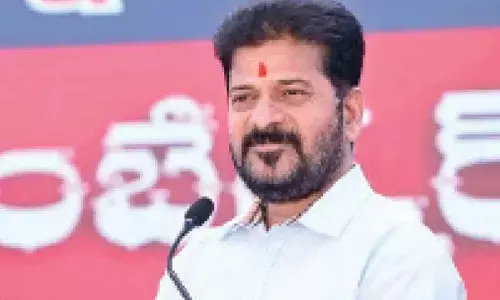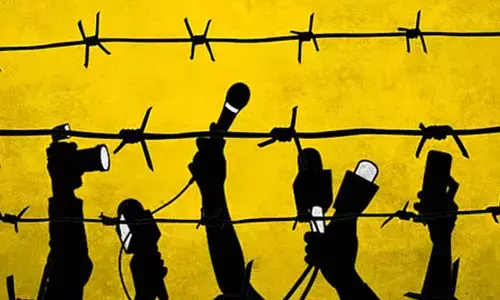A Second Trump Presidency: Implications for India
The prospect of a second Donald Trump presidency has stirred significant debate and speculation around the globe. As one of the most influential leaders in world politics, Trump's policies and style have profound implications for the United States and other nations, including India. This article examines potential shifts in the U.S.-India relationship and their broader impacts across economic, geopolitical, and cultural dimensions in the event of a second Trump presidency.
A Recap of Trump's Previous Policies Toward India
During his first term (2017-2021), Donald Trump's approach to India was marked by camaraderie and tension. His administration emphasized strengthening strategic ties with India, viewing it as a crucial partner in countering China's influence in Asia.
The Comprehensive Global Strategic Partnership (CGSP) and the Defense Technology and Trade Initiative (DTTI) are both frameworks aimed at deepening defense and strategic cooperation between the United States and India.
Comprehensive Global Strategic Partnership (CGSP)
This partnership encompasses many areas, including defense, trade, technology, and regional security. Established during the ongoing evolution of U.S.-India relations.
The CGSP emphasizes mutual interests in maintaining stability in the Indo-Pacific region and countering shared threats, particularly from terrorism and an assertive China.
Under this partnership, both nations engage in various cooperative endeavors, including military exercises, joint training, and intelligence sharing. The aim is to enhance interoperability between the two countries' armed forces.
The partnership also seeks to bolster economic collaboration with initiatives promoting trade, investment, and technology sharing, benefiting both economies.
Beyond bilateral relations, the CGSP encourages cooperation on global challenges such as climate change, health security, and cybersecurity, underscoring the role of both nations as leaders in the international community.
Defense Technology and Trade Initiative (DTTI)
Launched in 2012 as part of the broader U.S.-India defense cooperation framework, the DTTI aims to enhance defense ties by promoting co-development and co-production of defense technologies.
The initiative encourages collaborations for the joint development and production of defense platforms and technologies, enhancing India's indigenous defense capabilities. This model is intended to transfer critical technology and promote self-reliance in defense manufacturing.
The DTTI aims to facilitate access to advanced U.S. defense technologies, enabling India to modernize its military and enhance its defense infrastructure.
By working on joint defense projects, both countries can enhance the interoperability of their forces, which is crucial for joint operations and exercises.
The DTTI aligns with the U.S. approach to foreign military sales, facilitating exports of defense equipment and technology to India while ensuring that U.S. defense technology is shared responsibly.
The CGSP and DTTI signify a robust commitment to strengthen U.S.-India relations, particularly in defense and security, fostering a collaborative environment for addressing everyday challenges. They reflect the broader geopolitical trends and mutual interests in ensuring regional stability and security in an increasingly complex global landscape.
Endorsement of Bilateral Ties
Trump's administration sought to enhance defense and security ties with India, signing significant agreements such as the Comprehension Global Strategic Partnership and the Defense Technology and Trade Initiative (DTTI). Such moves indicated a commitment to a robust security alliance in the Indo-Pacific region.
Economic Engagement
Trump's "America First" policy created challenges in trade relations. High tariffs on steel and aluminum negatively impacted Indian exports, leading to retaliatory measures from India. Nevertheless, Trump's administration did recognize India as a major defense partner, facilitating the sale of military equipment. The America First concept can benefit the trade share of some companies.
Focus on Counter-Terrorism
Trump's stance on terrorism aligned with India's concerns over cross-border terrorism emanating from Pakistan, which fostered a common ground for cooperation in counter-terrorism missions.
Potential Economic Implications
A second Trump presidency could impact the economic ties between the U.S. and India.
Under Trump, the U.S. adopted a protectionist posture, favoring bilateral trade agreements over multilateral ones. Should Trump pursue this approach again, it could lead to increased tariffs on Indian goods and a more adversarial trade relationship. Conversely, he may seek to negotiate new trade deals that could benefit specific sectors of the Indian economy, particularly if those deals are perceived to favor American interests.
Trump's skepticism toward multilateral trade organizations like the World Trade Organization could hinder broader economic cooperation in the Indo-Pacific. India, looking to play a vital role in regional trade networks, could be disadvantaged if the U.S. disengages from such platforms.
Trump's focus on American innovation and domestic production may affect Indian startups, particularly in the tech sector. Policies favoring "Made in America" could make it harder for Indian technology firms to access the U.S. market, potentially limiting investment opportunities and scale for Indian businesses.
If Trump continues to emphasize India as a strategic partner, there could be opportunities for increased U.S. investments in defense, energy, and technology sectors. However, this must be balanced against protectionist sentiments that favor American businesses.
Geopolitical Dynamics
A second Trump administration would likely alter the geopolitical landscape in South Asia and beyond:
Trump has been a proponent of the Quadrilateral Security Dialogue (Quad), which involves the U.S., India, Japan, and Australia. This alliance aims at enhancing security coordination in the Indo-Pacific as a counterbalance to China. A Trump presidency could further consolidate this alliance with joint military exercises and collaboration on security infrastructure.
Trump has historically adopted an aggressive stance towards China, particularly in trade, military expansion in the South China Sea, and human rights issues. A second term could see India's role as a frontline state in the U.S.-China rivalry grow, as India has shared concerns about China's Belt and Road Initiative and territorial disputes in the region.
Trump's administration maintained a tough stance on Pakistan regarding terrorism. If re-elected, he may continue to adopt this tact, thus potentially strengthening India's strategic position. However, any perceived favoritism towards India over Pakistan could exacerbate tensions, requiring sensitive diplomatic navigation.
The U.S. may increase military support and intelligence sharing with India to counterbalance Chinese influence and address security concerns stemming from Pakistan and China's proximity. This situation also benefits U.S. interests by promoting stability in a critical region.
Cultural and People-to-People Relations
Immigration Policy: Trump's record on immigration has been contentious. A second term may see continued restrictions that could affect Indian IT professionals and students seeking opportunities in the U.S. Such a shift could frustrate many Indian expatriates and professionals who contribute significantly to the U.S. economy.
Despite tight immigration policies, Indian students have historically sought educational opportunities in the U.S. A second Trump presidency could bolster or hinder these exchanges. Focusing on domestic educational initiatives might lead to reduced funding for international student programs, impacting Indian students' access to American universities.
The U.S. has a robust culture of fostering exchanges through various government programs. If Trump prioritizes nationalism and insularity, such programs could see reduced funding or support. Conversely, if seeking goodwill becomes a political strategy, increased support for cultural exchanges might occur, enhancing mutual understanding.
Climate Change and Energy Policy
Climate policy has been a polarizing issue during Trump's tenure. A second term could have notable implications for U.S.-India cooperation regarding climate change and energy:
Renewable Energy Initiatives: Both nations have expressed interest in renewable energy collaboration, mainly through partnerships to enhance solar energy capabilities. However, if Trump reverts to fossil fuel support, India's ambition to lead in renewable energy might face challenges, affecting investments and technology-sharing initiatives between the two nations.
Trump's previous exit from the Paris Agreement raised concerns globally. His potential withdrawal from international climate accords might affect India, especially since India has committed to significant renewable energy targets. The diminished U.S. commitment to global climate initiatives could complicate international efforts, impacting India's strategy and plans toward achieving sustainable development goals.
Expectation Management and Strategic Autonomy
The complexities of U.S. foreign policy under Trump might compel India to reassess its strategic priorities:
A second Trump administration might not prioritize India's relations as consistently as during his first term. This scenario could prompt India to diversify its international partnerships, looking toward other nations like Russia, the European Union, or ASEAN countries to maintain its strategic relevance and autonomy.
The growing tensions between the U.S. and China will require India to navigate its position carefully. India's ability to balance its relations with the U.S. and China will be critical, and it may leverage its ties with the U.S. to gain concessions from China, particularly concerning trade and territorial disputes.
Should Trump continue to take an unpredictable approach to foreign relations, India may feel constrained to adopt a more comprehensive security strategy that encompasses U.S. relations and its regional engagements, including deeper ties with neighbors like Japan, Australia, and Russia.
Conclusion
The potential for a second Trump presidency raises a host of implications for India across economic, geopolitical, and cultural dimensions. While the first Trump administration fostered stronger defense ties and positioned India as a strategic partner in the Indo-Pacific, escalation of protectionist policies, limited multilateralism, and unilateral approaches could reshape the landscape of U.S.-India relations in ways that may constrain opportunities for growth and collaboration.
As India grapples with these developments, it will be essential to reassess its strategies, adapting to a shifting global environment characterized by uncertainty and competition. The relationship between the two nations could be defined by both challenges and opportunities, requiring ongoing diplomatic engagement, innovative economic partnerships, and a shared vision for a secure and prosperous Indo-Pacific region. The future dynamics of this bilateral relationship will depend significantly on how both leaders navigate their respective domestic and international landscapes amid conflicting interests and evolving geopolitical realities.

















